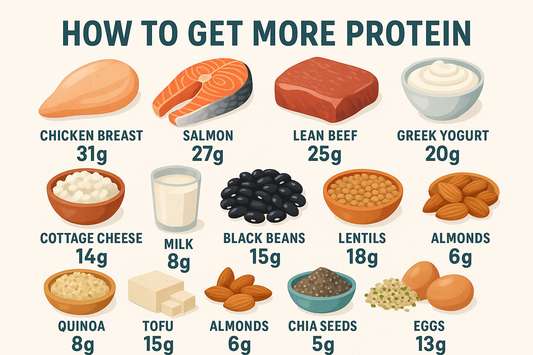Learning how to improve as a sports competitor is a lifelong endeavour. There are several ways to improve, and the techniques available to you are always evolving!
The following tips focus on the essential techniques and strategies that will help you become a better sportsperson and achieve more success in competition. Bring this to work, and you'll see how your performance improves and your chances of success increase.
1. Pen down your goals
Developing long-term objectives is an excellent strategy to stay motivated and improve your physical performance. You can not only figure out what you want to accomplish, but you can also find out how to make things work.
Make a list of your goals on a sticky note and post them somewhere noticeable. Make a note of what you're attempting to accomplish with that note. You may use it later to analyze your progress and determine what modifications you need to make to push yourself even further.
2. Strengthen your basics
You must have a solid understanding of the fundamentals. Before getting into the root of the matter, concentrate on the fundamentals. Aerobic training, general strength building, mobility drills, and body conditioning are all examples of this. All of these basics may have a significant impact on how your body reacts to more intense workouts. It helps the body prepare for more intensive exercise later on. Mastering the fundamentals lowers your risk of injury and increases your stamina.
3. Be consistent
When it comes to being a better competitor, consistency is important. You'll have days when you don't feel like working out. However, you must get motivated and do the task anyway. Each day, set aside a specific amount of time to train. Even if it's only for 30 minutes a day, consistency is key. The more you stick to it, the better it will be for your physique and health.
4. Push your limits
You should constantly strive to exceed your expectations. The odds of getting well gradually decrease as you become more comfortable. People become relaxed since their bodies aren't having to work as hard to perform such activities. Finally, you won't be able to see any further outcomes as a consequence of this. The only way to improve is to work harder and attempt to go above your current level of performance.
5. Cross-train
Cross-training is when you engage in activities that aren't related to your primary sport. The goal of cross-training is to increase your total fitness and motivate your complete body to recover quickly. Cross-training can also keep you from getting injured by focusing on parts of your body that aren't used as much in your activity.
6. Take quality sleep
If you don't get a complete 8 to 9 hours of sleep every night, you need to make certain lifestyle and schedule modifications. Sleep is a vital recuperation technique that will help your body prepare for your next workout. Your brain relaxes and your muscular tissue heals while you sleep. You must ensure that you are receiving adequate rest. This entails receiving several hours of deep uninterrupted sleep.
7. Take proper diet
If you're not properly feeding your body, you can't expect to see gains in your performance. Unhealthy meals put your body under unneeded stress and slow down the healing process. Making dietary adjustments isn't quick and easy, but it's definitely worth the effort. Consider consulting a dietitian or nutritionist if you want more assistance. They can assist you in getting back on track by making lasting adjustments.
Conclusion
It's both simple and challenging to figure out how to become a better competitor. Many of the foundations are simple in theory but difficult to put into effect in practice.
Use these tips to help you navigate your training as you strive to improve every day. Maintain your development and consistency, and you will undoubtedly be successful.











